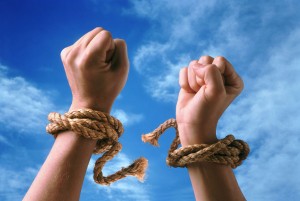Striving for Wholeness
I just read Judnick Mayard’s story, “The Things We Suffer” at Gawker and, if you’ve the strength of heart to follow her description of abuse from her mother, there’s some valuable insights to be gained from reading Mayard’s perspective.
I’m the father of two daughters, now in their 20s. Find more details about it at this site http://sportive-pariuri.com/agentii-pariuri/. The way I raised my kids was in part driven by the belief that it was my responsibility to keep them safe through their childhood and prepare them to be creative, compassionate, cognitively and emotionally intelligent, functional adults who would be assets in any relationship or community they would become part of. Through those years of raising my kids, I loved that mission and I think I’ve done a pretty good job. (See for yourself. Jessica Lehrman and Cassidy Lehrman)
On the professional level, as a therapist, I’ve worked with people (I probably should acknowledge it’s only been women) who wanted to work on breaking free of the baggage they got from their mothers/parents, specifically in order to break a lineage of abuse, control issues, self-centeredness, negativity, self-defeating behavior, or neurosis in its multitude of expressions, prior to these clients, themselves, becoming in some cases wives and in some cases mothers. What an honorable motivation – to break the lineage of dysfunction before it gets passed on to the next generation.
Whether through therapy, self-reflection, or even boundary setting, what Mayard is striving for is what I gave my kids. Mayard is now an adult and wants to free herself not only of any continuance of treatment she received all her years from her mother, but freedom from what has taken on a life of its own inside herself – those voices, guilts, and doubts that are so insidiously erosive.
As children we cannot control how we’re treated by our parents, and however we’re treated leaves it’s mark in our lives. Sometimes those marks are attractive body definition, sometimes they are scars, sometimes they are wounds that never heal. Even as adults, so much is out of our control – what we think, what we feel, and what others think, feel, and do. That leaves only one thing that is actually in our control – what we do. We can go into therapy, or self-reflection, or set boundaries. Or so much more. We can take practical steps to eliminate the toxic influences from our lives and to nurture the creativity, love, and freedom that is built into our cognitive-emotional DNA. We can learn to become aware of the parts of ourselves that are echoes of pain from our past and we can mindfully separate from those parts of ourselves to become bigger, freer. There are ways to do that.
In life, we either strive for wholeness or settle on being fractured. If you’ve got the awareness that you’re abusive, controlling, self-centered, negative, self-defeating, or neurotic in any way, or that you’re the recipient/holder of those things, have the compassion for yourself that comes from understanding that what’s in you is not you (see my last blog for more on that) and you didn’t put it there. It got put there through someone else’s pain and unconsciousness when you were young and vulnerable. But also compassionately hold yourself responsible for monitoring it and managing it; for going about the business of pulling these traits apart and making conscious adult decisions as to what traits to indulge and exercise and which ones to vigilantly starve.
I’m sad when people come to me as clients and it’s “too late”. People who want to love themselves or to get along with their spouse or children or simply have the happiness that has always been just out of reach, but they just don’t have the means to make the changes. Yes, I’ve worked with people who have allowed themselves to live too long accepting those voices, guilts, and doubts, and the beliefs that come with them. These are people who have spent decades inadvertently reinforcing those behaviors and beliefs and, especially at their advanced ages, find it too hard to break those habits.
Fortunately, I’ve had enough success with clients, both young and old, who do have the means. Mayard is maybe at an early stage of the work that is ahead for her but she will make it. She’s mindfully noticing the voices, guilts, doubts, and beliefs, and unfusing from being the Mayard who has been entranced by them. Responsively, she is making conscious choices oriented towards her wholeness in herself and her contribution to the community. We all have that capacity in us if we catch it early enough. Resiliency is not as big a challenge as breaking the hold those voices have on us. The longer we live with accepting those voices, the more entranced we are in believing them and acting accordingly; and the harder it is then to trust, let alone simply hear, that pure you, unsure of itself in so many ways, yearning for validating recognition and reasonable approval. Life is short, so question your beliefs and advocate for wholeness. Thank you, Judnick Mayard, for modeling that.
Copyright © 2014 Jim Lehrman
